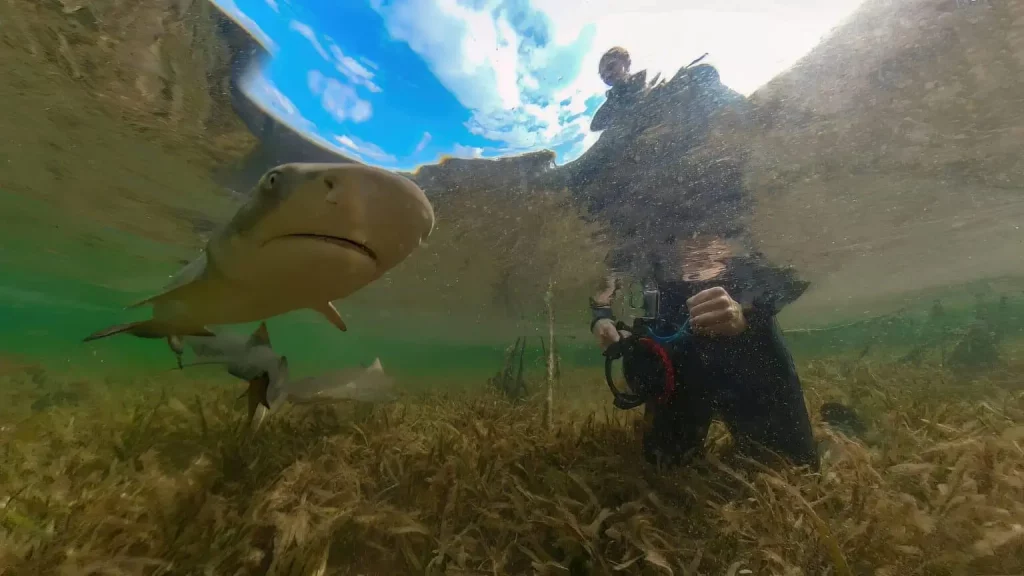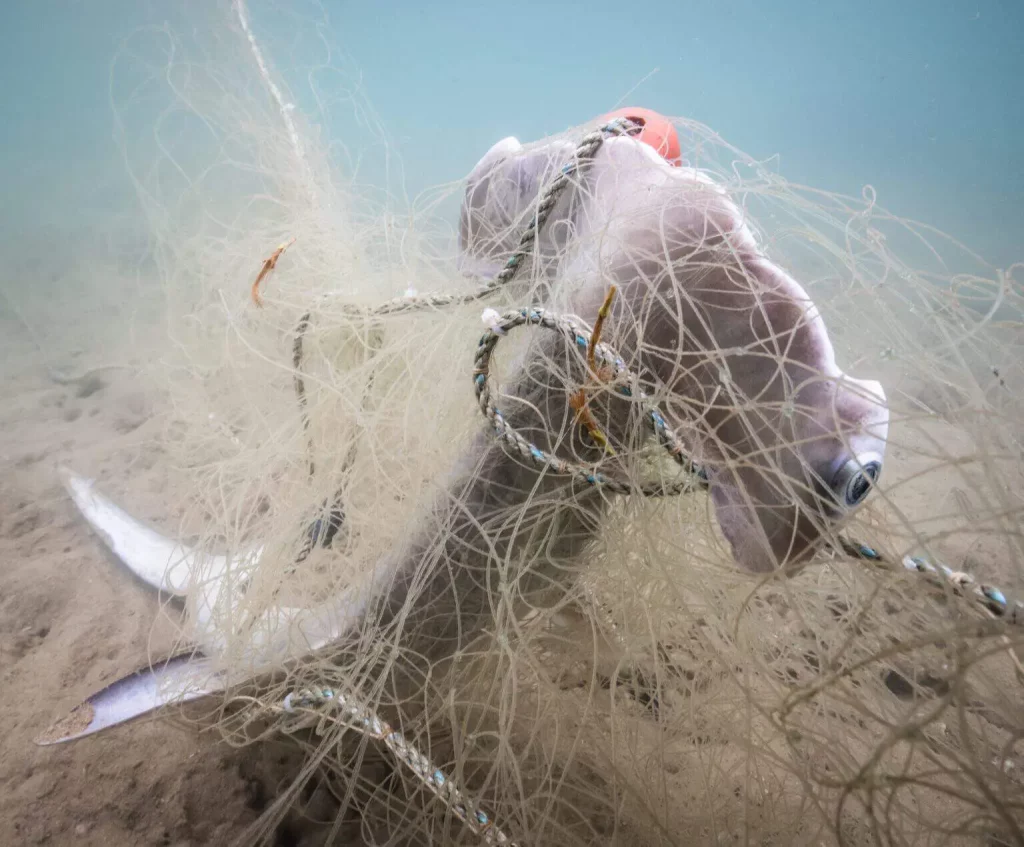
Sharks are commonly misunderstood and depicted as hunters with an insatiable appetite for flesh. This portrayal, perpetuated by media and cultural myths, obscures the true significance of sharks within our ecosystems.
Sharks play an important role in maintaining the balance and the health of the marine system. They also contribute to maintaining biodiversity and play an indirect role in carbon sequestration. Sharks usually prey upon the weaker, sicker, and slower aquatic individuals, which helps in the survival of the healthy and fittest living organisms in the cycle, subordinating evolution in marine life.
Why Sharks Are Important to the Ecosystem
Sharks, as apex predators, play an important role in maintaining the balance in the population and preventing any single group from overwhelming the ecosystem. Interestingly, white sharks eat about 0.5 to 3 percent of their total body weight per day. The Great Whites have an average weight of about 2,750 pounds, so they can eat 48.125 pounds of food per day, which will transform into the existence of evolution and balance in marines.
The abundance of any species can drastically damage the food chain as well as the maintenance of a healthy ecosystem. Being at the top of the food chain, these apex predators help in controlling mid-level predators and abundant species. The presence of sharks controls the quantity of their prey and helps to prevent the overgrazing of seagrasses, which is essential for the health of coastal ecosystems.
Why Are Sharks Important to the Ocean
The shark population aids in the recovery of coral reefs, the future of which is also endangered throughout the globe. A study by The Australian Institute of Marine Sciences further describes that where the number of sharks was lower due to human-induced activities, there was a dominant decrease seen in the fishes that promote reef health. Tracing more, it concludes that even small protected marine areas could be an effective way to protect the apex predators that will relatively boost the health of coral reefs, helping them recover from color bleaching and large cyclones.
The role of sharks is not only confined to the protection of coral reefs; they also play a pivotal role in keeping the food chain balanced by eating numerous and abundant species, thus allowing other species with good health to grow. This results in a diverse ecosystem in the marine environment that is more competent than the previous one.
Why Are Sharks Important to Humans?
Besides maintaining the food web balance in the oceans, sharks are also equally important for humans. From the perspective of the economy, studies show that shark diving is a major contributor to the economy of the countries involved in taking tourists to dive with sharks. The data further disclose that shark diving holds a major value in the economy of Palau, contributing US$18 million per year and accounting for approximately 8% of the country’s GDP. Shark holds additional benefits beyond the economical. It also contributes to the medical studies where it appears that sharks have anticoagulant and antibiotic properties. These properties can help humankind to find treatments for several medical conditions, such as cystic fibrosis. Some studies also show that certain compounds in shark cartilage can block the growth of blood vessels. This can help in slowing down the growth of cancer cells; however, no studies show that humans can be treated with shark cartilage.
How Do Sharks Help Coral Reefs?
Sharks, shuffling between the deep and shallow waters, enrich the latter with essential nutrients. Having the top position in the food web, sharks generally have no predators other than human fishing. Shark majors such as tiger sharks and great whites, prey upon unhealthy and weak fishes and the mesopredators (medium- to large-bodied reef fishes) that can kill herbivorous fishes.
If the sharks become extinct from the oceans, a greater number of mesopredators will eat more herbivorous fish that feed on algae.
When there are too many algae, it makes it harder for the tiny, plant-like organisms that live in coral to turn sunlight into food
The degradation of coral reefs will take away the shelter for many marines, and it will also affect the people using corals for livelihood.
The Threats Facing Sharks – Conservation Efforts
Main threats to Shark populations
Sharks are caught intentionally or as accidental bycatch in virtually all types of fisheries worldwide. The study by the International Union for Conservation of Nature has classified 17 percent of more than 1000 species assessed as threatened according to its Red List criteria. The study elaborates that nearly one-third of all known species of sharks and their relative species are considered threatened with extinction.
The habitat loss compounds the overfishing risks for the threatened sharks and ray species. The damage on tropical collar reefs also affects reef specialists like the Walking shark, as they rely on these productive ecosystems. Unfortunately, fewer efforts have been made to protect sharks, although they provide benefits to mariners, humans, and the ecosystem.
Sharks are the top predators, and they have the potential to structure ecosystems in many crucial ways. The decline of sharks will affect not only the balance of marine species population but also humankind, which will suffer heavy losses. Sharks play an important role in maintaining the ecosystem and carbon absorption. Additionally, the tissues of sharks can render a valuable service in the medical realm, where they can be used to treat fatal diseases.

Initiatives taken for Shark Conservation
The international community, understanding the alarming situation, has initiated many campaigns that can play an effective role in the conservation of sharks. The Global Sharks and Rays Initiative (GSRI) is founded to formulate and implement collaborative shark-saving strategies. A 2015-2025 strategy is set so that by 2025, the conservation rate of the sharks will be enhanced, and extinction will be prevented.
The GSRI is working proficiently and is also successful in achieving the objectives, where commitments to conserve sharks have increased globally. Along with this, many private and intergovernmental NGOs have taken a step forward in preserving the aquatic hammerhead. They also spread awareness about the aquatic species and their importance in retaining the balance of the ecosystem.
Conclusion
The misconception about sharks led us to consider sharks as human-eater monsters, but like other creations, the shark has a well-defined purpose, and their extinction can bring out a cascade effect. A cascade effect comprises an inevitable chain of events affecting a system, as the extinction of sharks will adversely affect not only aquatic life but also the atmosphere and humans. Preservation of sharks is an important task that helps as it promises our safety. One should study and research to realize that sharks are as important as oxygen in the environment; both assure life in this sphere.




